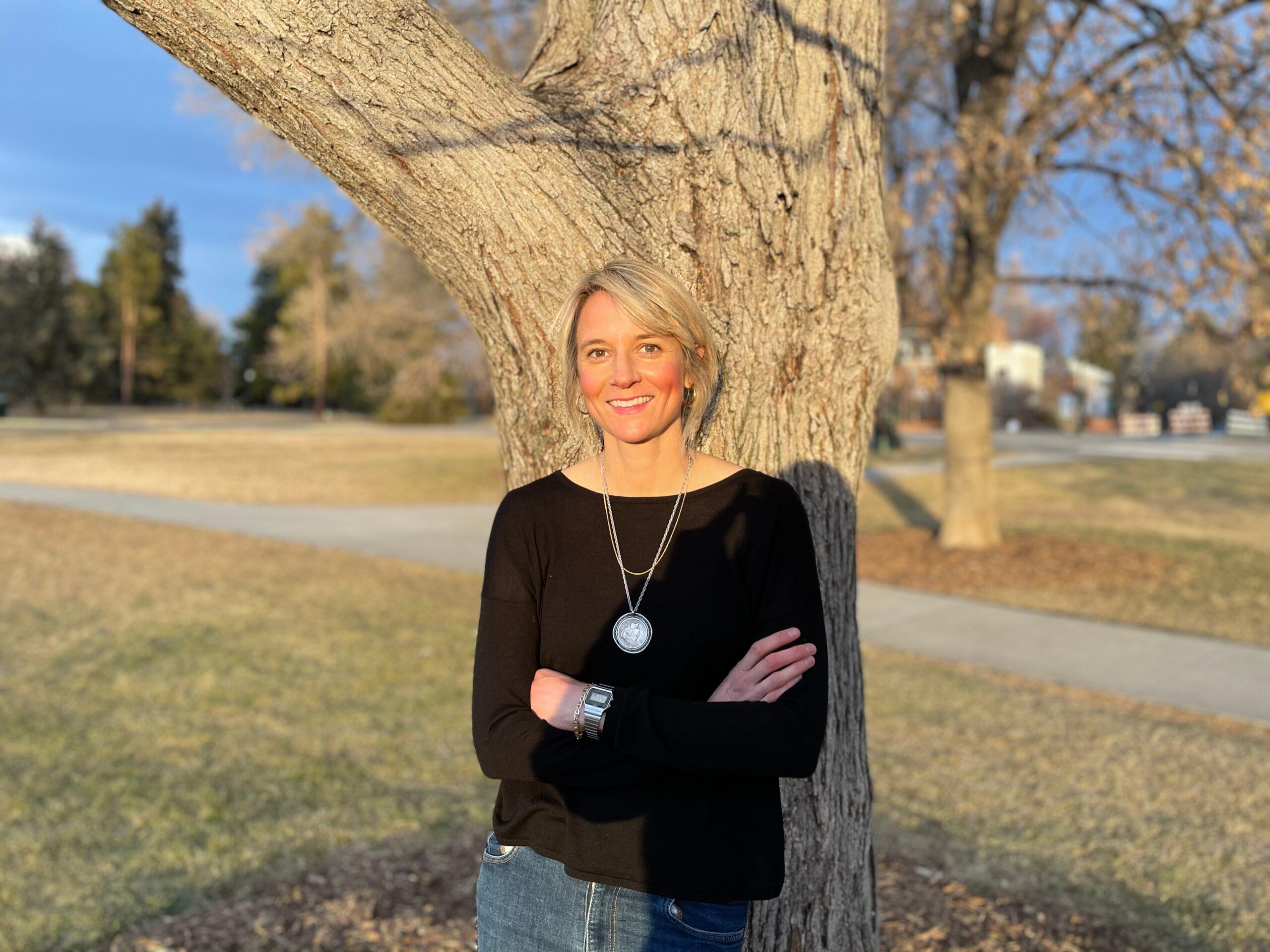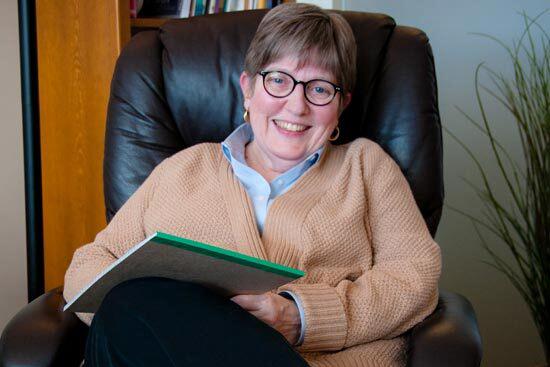
A University of Colorado School of Medicine associate professor who normally looks at the relationship between communication and LGBTQ health care outcomes pivoted from her usual field of study during the pandemic.
While most people were quarantining, Carey Candrian, 41, who’d never made a film before, sat on a couch with a cinematographer, and interviewed LGBTQ individuals and couples, to find out how they lived. In earlier parts of the pandemic, she spoke with subjects outdoors.
The result is a new 54-minute film, “Just Us: The Longing and Hope of LGBTQ People,” in which she was able to pull stories from 26 people, mostly Coloradans. They talked about how their lives are different from others’ in the sense that they don’t always feel safe or included – and also, at the same time, how their lives are very much the same as those of heterosexual individuals and couples.
One woman she interviewed told her: “It does something to your psyche, to your health, mental and physical, to always be engaged in this question, am I allowed to be here? Am I allowed to be who I am in this world?”
On the opposite end of the spectrum, at another part in the film, a lesbian couple Candrian interviewed talked about never missing giving each other a kiss each day.
Candrian, who lives in Longmont and is a member of the LGBTQ community, focuses at CU Anschutz on how communication affects outcomes in health care in older generations of LGBTQ people. That knowledge works its way through the academic world she inhabits fairly easily, but reaching the general public? Not so much.
She said making the film “has been a way to hopefully help humanize the research and actually hear individual stories and voices, so people can actually see real people, hear real people behind the statistics in hopes that that might move them in ways that a statistic can’t.”
She made the film so she could provide non-academic types with some of the information her research has found, such as:
- Being discriminated against for being part of the LGBTQ community leads to anxiety and depression
- Stressors related to being a part of this community can take 12 years off a person’s life
- Negative stereotypes of LGBTQ people from years ago persist today.
“I decided to make this film because as a researcher, one of the most important and most difficult things about doing research is being able to do it in a way that actually translates to different communities and different contexts,” she said in an interview a week after the film opened late last month. “The film became one way of actually being able to do that. I’ve been really committed to finding different ways to let research be accessible to a variety of audiences, and turning to the arts is one way.”
The film, made on a budget of $25,000 and funded by Colorado Trust, is one in which a Boulder community historian finds value. Boulder-based retired psychologist and self-taught Colorado queer community historian Glenda Russell said the film allows queer people to see themselves and each other.

“This film gives some examples to people of “Here’s what [we] look like, here’s what [we] think like. Here are some of the things that are a part of [our] life, and that’s a really illuminating position if you’ve been isolated.”
She said the film also shows how coming out has changed over time.
“They’re people of different ages who grew up and ended up coming out as lesbian, gay, bisexual or transgender, they were coming out in very different contexts,” Russell said. “You have older people who have stories where it was literally dangerous to come out. Then you have younger people who in general have come out in easier circumstances, because people who are young came out in a context where there was at least some familiarity with differences in sexual orientation.”
The film is also a moment of celebration in a time that has seen an increase in anti-trans and -LGBTQ sentiment. In 2023 so far, several hundred bills targeting the rights of trans people and other members of the LGBTQ community have been introduced in state legislatures across the country.
Where to see the film:
“Just Us” is playing at Boedecker Theater at the Dairy Art Center in Boulder until July 5. Admission is $7.
The film is among dozens of Pride-oriented events happening around Colorado this month. Here are some others:
- Queer and Trans People of Color Pride, Sunday, June 18, 12-4 p.m., Equality Center of the Rocky Mountains, Boulder
- Pride Story Time, Thursday, June 29, Denver Public Library, Hampden Branch
- Longmont Pride Festival, Friday, June 30, 4-8 p.m. in Roosevelt Park









